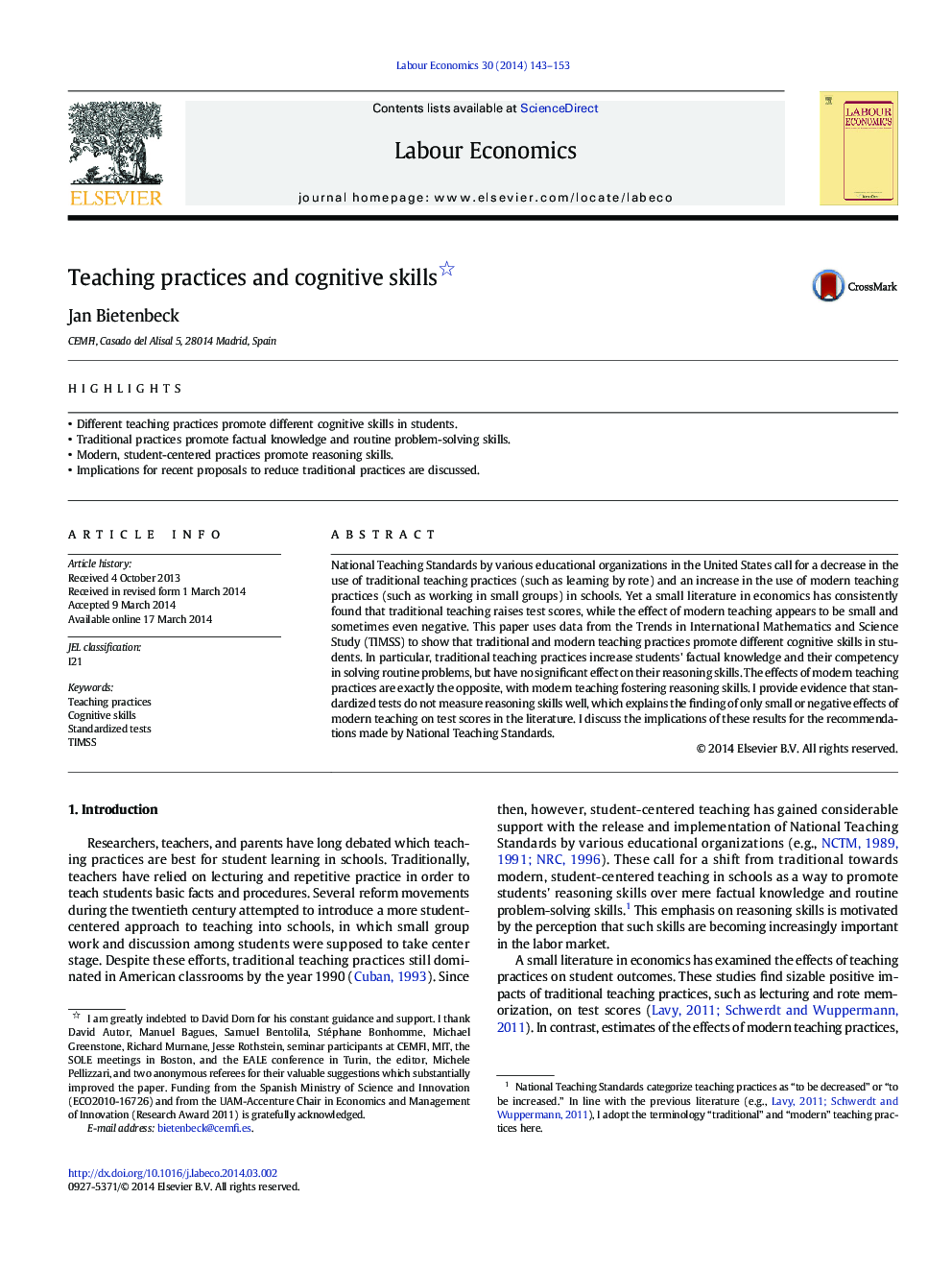| Article ID | Journal | Published Year | Pages | File Type |
|---|---|---|---|---|
| 972362 | Labour Economics | 2014 | 11 Pages |
•Different teaching practices promote different cognitive skills in students.•Traditional practices promote factual knowledge and routine problem-solving skills.•Modern, student-centered practices promote reasoning skills.•Implications for recent proposals to reduce traditional practices are discussed.
National Teaching Standards by various educational organizations in the United States call for a decrease in the use of traditional teaching practices (such as learning by rote) and an increase in the use of modern teaching practices (such as working in small groups) in schools. Yet a small literature in economics has consistently found that traditional teaching raises test scores, while the effect of modern teaching appears to be small and sometimes even negative. This paper uses data from the Trends in International Mathematics and Science Study (TIMSS) to show that traditional and modern teaching practices promote different cognitive skills in students. In particular, traditional teaching practices increase students' factual knowledge and their competency in solving routine problems, but have no significant effect on their reasoning skills. The effects of modern teaching practices are exactly the opposite, with modern teaching fostering reasoning skills. I provide evidence that standardized tests do not measure reasoning skills well, which explains the finding of only small or negative effects of modern teaching on test scores in the literature. I discuss the implications of these results for the recommendations made by National Teaching Standards.
